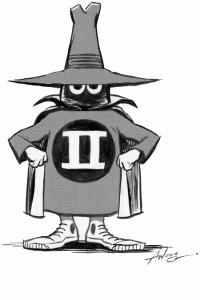Search the Community
Showing results for tags 'scare'.
-
https://www.8world.com/world/influencer-retires-from-selling-farts-after-heart-attack-scare-1693591 美国网红卖屁赚27万 屁放太多心脏出问题 因卖“瓶装屁”而人气大增的美国女网红,近日因为放太多屁而出现心脏问题,被迫放弃这个赚钱大计。 《8视界新闻网》此前报道,因演出实境秀而声名大噪的女网红Stephanie Matto,自去年11月开始,以每瓶500美元(约680新元)的价格,在各大社交平台和视频网站向粉丝推销她的“瓶装屁”。 “产品”推出后反应非常好,让她赚进20万美元(约27万2000新元)。 特别多吃高蛋白质食品 为此,她每周必须赶制50瓶的屁,以满足客户的需求。而为了让自己的屁味更浓郁,她每天特别多吃豆类、鸡蛋和高蛋白质的食物,尤其喜欢香蕉蛋白奶昔。 不过,英国网媒《Jam Press》报道,女网红近日出现类似心脏病的症状,胸口极度疼痛而被紧急送医。 “当天晚上,我躺在床上,感觉到胃部有股气不断往上移。每次吸气时,都会感觉心脏疼痛。” “我以为自己中风,快不行了!” 经过验血和心电图等检查后,医生告知并非中风或心脏病发作,而是因为持续食用可以排放气体的豆类和鸡蛋导致非常严重的“胀气痛”,建议她改变饮食和服用抑制气体的药物,但这无异于终结她这盘生意。 部分收入捐作慈善 不过,为了自己的性命着想,女网红决定停止“卖屁”,并将部分收入拿来做慈善。 她表示,由于自己的事业太另类,网民对她的评价十分两极。有人称她是女强人、激励他们对自己的工作不感到羞耻,但也有很多负面评论,甚至接到死亡恐吓,而她都选择不去理会。 Anybody good at translation?
-
Do me a favour, please watch the video first before reading past this first sentence, this way, you will understand the context of what is going on. Turn your sound on too. 41860487_462079431454648_3710982132141643689_n.mp4 Done? Great. So, the actions of the driver in the camera car. Necessary, or just plain idiotic and rude? Yes, the uncle at the traffic light did seem a little blur and started crossing the road, rather slowly too, after the red man came on. Yes, this traffic light along Victoria Street is notorious for heavy vehicular and pedestrian traffic, as seen in the video where people are not done crossing the road even as the red man comes on. Perhaps let's cut the uncle some slack? Maybe he wasn't paying attention or just having an off day. Or on the other hand, he is really lacking spatial awareness and nearly got himself killed. Understandably, the driver in the camera car could've not honked so long and scared the uncle half out of his slippers. A double tap of his horn would've been suffice, plus the other cars around the camera car don't seemed to have moved off either. And also being so eager to leave the lights. Where are you rushing off to, bro? But then again, this writer daresays that both parties are in the wrong in this incident. The uncle for not being observant of the traffic light and taking his own sweet time to cross, and the driver for being extremely heavy handed with his horn. Although the driver should be more conscious on his acceleration. Yes, this writer knows that most of us can't tolerate stupid people, but do remember that if you as a driver hits a pedestrian, it's not going to just be demerit points, man. Like most things in life, a little patience doesn't kill, people. You would think people would've remembered that by now but no.......
- 6 comments
-
- bugis
- traffic light
-
(and 6 more)
Tagged with:
-
I never take MIC food............. https://sg.news.yahoo.com/australians-hepatitis-chinese-berries-004352788.html Nine Australians have contracted hepatitis A linked with eating contaminated berries from China, with the importer apologising Tuesday as the food scare spreads. Manufacturer Patties Foods has recalled four products including the Nanna's and Creative Gourmet brands of mixed berries and Nanna's raspberries after infections in Victoria, Queensland and New South Wales. They are all sold nationally in major supermarkets, having been packed in China. The hepatitis A cases are linked with Nanna's Frozen Mixed Berries, with three other brands pulled off shelves as a precaution. "Hepatitis A virus infection is uncommon and normally associated with travel to countries affected by endemic hepatitis A," said Rosemary Lester, chief health officer in Victoria state, where three cases have been reported. "The only common link between the cases is consumption of this product -- there is no overseas travel or common restaurant exposure." Poor hygiene among Chinese workers and potentially contaminated water supplies in China are likely to have caused the outbreak, experts said. "In this situation, the most likely culprit is poor hygiene at the site of production," said Enzo Palombo, a food health and safety expert at Swinburne University of Technology. "Hepatitis A is transmitted by the so-called 'faecal-oral' route -- an infected person sheds the virus in their faeces which then contaminates food or water. "The virus either directly contaminates the food through a food handler not washing their hands properly or it could come from contaminated water used to wash the berries." Hepatitis A is a viral disease that affects the liver, causing abdominal pain, nausea, vomiting, fatigue and jaundice. It has an incubation period of up to 50 days. "As a company, we apologise to our consumers and customers for the concern and distress this is causing," said Patties Foods chief executive Steven Chaur
-
http://www.channelnewsasia.com/news/singapore/2-men-to-be-charged-for/2088590.html i wonder if is GTR http://www.straitstimes.com/singapore/transport/man-arrested-for-driving-sports-car-at-146kmh-in-seletar-link
-
A woman told a police officer she was a Residents' Committee (RC) member when she went to the scene of fight involving her brother. STOMPer FrommeArcee wonders if the woman thought she would get 'special treatment' by saying that she was an RC member. Said the STOMPer: "A woman's brother (in black shirt and pants) was involved in a fight with two shopkeepers in their 50s, one of them a woman, over a return of a toilet seat purchase. "She (the woman in blue dress) arrived after the Police did and immediately proclaimed to the police officer twice that she was from the RC while pointing to the direction she came from. "Makes me wonder whether grassroots leaders are given special treatment when they or their relatives and friends get into trouble with the law. "The GRC in which the incident took place is Tampines which is helmed by well-loved and highly respected MPs and I think by her actions, she had brought disrepute to them if she, is in fact really a grassroots leader."
- 176 replies
-
- membership
- scare
-
(and 1 more)
Tagged with:
-
Time to play some AV on this TV. lol!
-
Onus is on one to check own passport right? Anyway do take note bros. From ST Forum: http://www.straitstimes.com/STForum/Story/...ory_806070.html Unstamped entry scare at Causeway Published on Jun 2, 2012 PERHAPS visitors to Malaysia can learn from my experience on Tuesday, when I drove to Johor with a friend, via the Causeway ('KL to scrap arrival cards for foreigners'; May 19). My friend's passport had a Malaysia Automated Clearance System (Macs) tag, which does not require his passport to be stamped when he enters the country. Mine did not, so it required an entry and exit stamp. When I gave my passport to the immigration officer, I saw him key in my passport number, scan my passport, and stamp what I assumed - wrongly, it turned out - was my passport. When he returned it, I did not check if it had been stamped to show my entry into Malaysia. On our way back to Singapore, the immigration officer at the departure counter told me that my passport did not bear the entry stamp, and that I faced two weeks' jail, plus a fine of RM1,000 (S$400). As Malaysia no longer requires foreigners to fill in the embarkation card, I had no proof that I had entered the country legally. After much pleading, the officer let me through. So, fellow travellers to Malaysia should make sure and check that their passports are stamped. Steve Choo
-
I just received this in my email. Looks POSSIBLY genuine. anyway, i do not consume such food be they in JB or SG. outside oil is used many many times before being changed. i'd rather fire up my deep fryer at home where the oil is changed after 10 fryings or so
-
Another scary news... Chopsticks picked up in new China scare Wed Aug 22, 2007 9:44 AM ET BEIJING (Reuters) - A Beijing factory sold up to 100,000 pairs of disposable chopsticks a day without any form of disinfection, a newspaper said on Wednesday, the latest in a string of food and product safety scares. Counterfeit, shoddy and dangerous products are widespread in China, whose exports have been rocked in recent months by a spate of safety scandals, ranging from pet food to medicine, tires, toothpaste and toys. Officials raided the factory and seized about half a million pairs of disposable bamboo chopsticks and a packaging machine, the Beijing News said in a story headlined "Dirty Chopsticks." The owner, identified only by his surname Wu, said he had sold the chopsticks for 0.04 yuan a pair and made an average of about 1,000 yuan ($130) a day. Wu, who had no license to sell the goods, said he had sold 100,000 pairs a day when business was good. China lacks the manpower to enforce food and drug safety regulations at home or for export. Imports are generally carefully scrutinized. Shao Mingli, the country's food and drug watchdog chief, conceded that in recent years the safety situation had "indeed been relatively grim." But in a posting on the central government's Web site (www.gov.cn), Shao vowed it would take "about five years of hard work" to realize an "obvious turnaround" in management order and food and drug safety across the country. "The number of cases of fake food and drug products and criminal activities will be effectively curbed," Shao said. A lack of business ethics and a spiritual vacuum after China embraced economic reforms in the late 1970s have been blamed for unscrupulous business practices and corruption. In Guangzhou, capital of booming Guangdong province in south China, Mayor Zhang Guangning vowed to bankrupt serious violators of food and product safety. The Hong Kong owner of a Guangdong manufacturer at the centre of a recall of millions of Chinese-made toys by U.S. giant Mattel had committed suicide, according to Hong Kong media. China has said the world should have faith in the "made-in-China" label and that a spate of product recalls has been unfair, biased and politically motivated. "No country can guarantee their food to be 100 percent safe, but if one in 100 or even in 1,000 of our products has quality problems, we will deal with it seriously," Commerce Minister Bo Xilai said on Tuesday. "China strongly opposes (some countries) extending individual economic and trade problems, and thus conducting trade protection," Bo said in a report on the ministry's Web site (www.mofcom.gov.cn). In the latest in a series of tit-for-tat measures, China has accused the United States of exporting substandard soybean shipments to China and requested "effective measures" be taken.
- 17 replies
-
- Chopsticks
- picked
-
(and 2 more)
Tagged with:
-
http://www.ftc.gov/bcp/conline/pubs/autos/autorpr.htm The best way to avoid auto repair rip-offs is to be prepared. Knowing how your vehicle works and how to identify common car problems is a good beginning. It's also important to know how to select a good technician, the kinds of questions to ask, and your consumer rights. According to the Federal Trade Commission (FTC), the American Automobile Association (AAA), and the National Association of Attorneys General (NAAG), this kind of information about your automobile may help you keep a lid on mechanical mistakes. REPAIR INFORMATION How to Choose a Repair Shop What should I look for when choosing a repair shop? Ask for recommendations from friends, family, and other people you trust. Look for an auto repair shop before you need one to avoid being rushed into a last-minute decision. Shop around by telephone for the best deal, and compare warranty policies on repairs. Ask to see current licenses if state or local law requires repair shops to be licensed or registered. Also, your state Attorney General's office or local consumer protection agency may know whether there's a record of complaints about a particular repair shop. Make sure the shop will honor your vehicle's warranty. How to Choose a Technician Is one technician better than another? Look for shops that display various certifications - like an Automotive Service Excellence seal. Certification indicates that some or all of the technicians meet basic standards of knowledge and competence in specific technical areas. Make sure the certifications are current, but remember that certification alone is no guarantee of good or honest work. Ask if the technician or shop has experience working on the same make or model vehicle as yours. Repair Charges: Unlocking the Mystery Before you arrange to have any work performed, ask how the shop prices its work. Some shops charge a flat rate for labor on auto repairs. This published rate is based on an independent or manufacturer's estimate of the time required to complete repairs. Others charge on the basis of the actual time the technician worked on the repair. If you need expensive or complicated repairs, or if you have questions about recommended work, consider getting a second opinion. Find out if there will be a diagnostic charge if you decide to have the work performed elsewhere. Many repair shops charge for diagnostic time. Shops that do only diagnostic work and do not sell parts or repairs may be able to give you an objective opinion about which repairs are necessary. If you decide to get the work done, ask for a written estimate. What should a written estimate include? It should identify the condition to be repaired, the parts needed, and the anticipated labor charge. Make sure you get a signed copy. It should state that the shop will contact you for approval before they do any work exceeding a specified amount of time or money. State law may require this. What should I know about the parts to be repaired or replaced? Parts are classified as: New - These parts generally are made to original manufacturer's specifications, either by the vehicle manufacturer or an independent company. Your state may require repair shops to tell you if non-original equipment will be used in the repair. Prices and quality of these parts vary. Remanufactured, rebuilt and reconditioned - These terms generally mean the same thing: parts have been restored to a sound working condition. Many manufacturers offer a warranty covering replacement parts, but not the labor to install them. Salvage - These are used parts taken from another vehicle without alteration. Salvage parts may be the only source for certain items, though their reliability is seldom guaranteed. What do I need after the work is done? Get a completed repair order describing the work done. It should list each repair, parts supplied, the cost of each part, labor charges, and the vehicle's odometer reading when you brought the vehicle in as well as when the repair order was completed. Ask for all replaced parts. State law may require this. Preventive Maintenance What are the consequences of postponing maintenance? Many parts on your vehicle are interrelated. Ignoring maintenance can lead to trouble: specific parts - or an entire system - can fail. Neglecting even simple routine maintenance, such as changing the oil or checking the coolant, can lead to poor fuel economy, unreliability, or costly breakdowns. It also may invalidate your warranty. What maintenance guidelines should I follow to avoid costly repairs? Follow the manufacturer's maintenance schedule in your owner's manual for your type of driving. Some repair shops create their own maintenance schedules, which call for more frequent servicing than the manufacturer's recommendations. Compare shop maintenance schedules with those recommended in your owner's manual. Ask the repair shop to explain - and make sure you understand - why it recommends service beyond the recommended schedule. Warranties What warranties and service contracts apply to vehicle repairs? There is no "standard warranty" on repairs. Make sure you understand what is covered under your warranty and get it in writing. Be aware that warranties may be subject to limitations, including time, mileage, deductibles, businesses authorized to perform warranty work or special procedures required to obtain reimbursement. Check with the Federal Trade Commission or your state or local consumer protection agency for information about your warranty rights. Service Contracts Many vehicle dealers and others sell optional contracts - service contracts -issued by vehicle manufacturers or independent companies. Not all service contracts are the same; prices vary and usually are negotiable. To help decide whether to purchase a service contract, consider: Its cost. The repairs to be covered. Whether coverage overlaps coverage provided by any other warranty. The deductible. Where the repairs are to be performed. Procedures required to file a claim, such as prior authorization for specific repairs or meeting required vehicle maintenance schedules. Whether repair costs are paid directly by the company to the repair shop or whether you will have to pay first and get reimbursed. The reputation of the service contract company. Check it out with your state Attorney General's office or local consumer protection agency. How do I resolve a dispute regarding billing, quality of repairs or warranties? Document all transactions as well as your experiences with dates, times, expenses, and the names of people you dealt with. Talk to the shop manager or owner first. If that doesn't work, contact your Attorney General or local consumer protection agency for help. These offices may have information on alternative dispute resolution programs in your community. Another option is to file a claim in small claims court. You don't need an attorney to do this. HEADING OFF PROBLEMS The more you know about your vehicle, the more likely you'll be able to head off repair problems. You can detect many common vehicle problems by using your senses: eyeballing the area around your vehicle, listening for strange noises, sensing a difference in the way your vehicle handles, or even noticing unusual odors. Looks Like Trouble Small stains or an occasional drop of fluid under your vehicle may not mean much. But wet spots deserve attention; check puddles immediately. You can identify fluids by their color and consistency: Yellowish green, pastel blue or florescent orange colors indicate an overheated engine or an antifreeze leak caused by a bad hose, water pump or leaking radiator. A dark brown or black oily fluid means the engine is leaking oil. A bad seal or gasket could cause the leak. A red oily spot indicates a transmission or power-steering fluid leak. A puddle of clear water usually is no problem. It may be normal condensation from your vehicle's air conditioner. Smells Like Trouble Some problems are under your nose. You can detect them by their odor: The smell of burned toast - a light, sharp odor - often signals an electrical short and burning insulation. To be safe, try not to drive the vehicle until the problem is diagnosed. The smell of rotten eggs - a continuous burning-sulphur smell - usually indicates a problem in the catalytic converter or other emission control devices. Don't delay diagnosis and repair. A thick acrid odor usually means burning oil. Look for sign of a leak. The smell of gasoline vapors after a failed start may mean you have flooded the engine. Wait a few minutes before trying again. If the odor persists, chances are there's a leak in the fuel system - a potentially dangerous problem that needs immediate attention. Burning resin or an acrid chemical odor may signal overheated brakes or clutch. Check the parking brake. Stop. Allow the brakes to cool after repeated hard braking on mountain roads. Light smoke coming from a wheel indicates a stuck brake. The vehicle should be towed for repair. A sweet, steamy odor indicates a coolant leak. If the temperature gauge or warning light does not indicate overheating, drive carefully to the nearest service station, keeping an eye on your gauges. If the odor is accompanied by a hot, metallic scent and steam from under the hood, your engine has overheated. Pull over immediately. Continued driving could cause severe engine damage. The vehicle should be towed for repair. Sounds Like Trouble Squeaks, squeals, rattles, rumbles, and other sounds provide valuable clues about problems and maintenance needs. Here are some common noises and what they mean: Squeal - A shrill, sharp noise, usually related to engine speed: Loose or worn power steering, fan or air conditioning belt. Click - A slight sharp noise, related to either engine speed or vehicle speed: Loose wheel cover. Loose or bent fan blade. Stuck valve lifter or low engine oil. Screech - A high-pitched, piercing metallic sound; usually occurs while the vehicle is in motion: Caused by brake wear indicators to let you know it's time for maintenance. Rumble - a low-pitched rhythmic sound. Defective exhaust pipe, converter or muffler. Worn universal joint or other drive-line component. Ping - A high-pitched metallic tapping sound, related to engine speed: Usually caused by using gas with a lower octane rating than recommended. Check your owner's manual for the proper octane rating. If the problem persists, engine ignition timing could be at fault. Heavy Knock - A rhythmic pounding sound: Worn crankshaft or connecting rod bearings. Loose transmission torque converter. Clunk - A random thumping sound: Loose shock absorber or other suspension component. Loose exhaust pipe or muffler. Feels Like Trouble Difficult handling, a rough ride, vibration and poor performance are symptoms you can feel. They almost always indicate a problem. Steering Misaligned front wheels and/or worn steering components, such as the idler or ball joint, can cause wandering or difficulty steering in a straight line. Pulling - the vehicle's tendency to steer to the left or right - can be caused by something as routine as under-inflated tires, or as serious as a damaged or misaligned front end. Ride and Handling Worn shock absorbers or other suspension components - or improper tire inflation - can contribute to poor cornering. While there is no hard and fast rule about when to replace shock absorbers or struts, try this test: bounce the vehicle up and down hard at each wheel and then let go. See how many times the vehicle bounces. Weak shocks will allow the vehicle to bounce twice or more. Springs do not normally wear out and do not need replacement unless one corner of the vehicle is lower than the others. Overloading your vehicle can damage the springs. Balance tires properly. An unbalanced or improperly balanced tire causes a vehicle to vibrate and may wear steering and suspension components prematurely. Brakes Brake problems have several symptoms. Schedule diagnosis and repair if: The vehicle pulls to one side when the brakes are applied. The brake pedal sinks to the floor when pressure is maintained. You hear or feel scraping or grinding during braking. The "brake" light on the instrument panel is lit. Engine The following symptoms indicate engine trouble. Get a diagnosis and schedule the repair. Difficulty starting the engine. The "check engine" light on the instrument panel is lit. Rough idling or stalling. Poor acceleration. Poor fuel economy. Excessive oil use (more than one quart between changes). Engine continues running after the key is removed. Transmission Poor transmission performance may come from actual component failure or a simple disconnected hose or plugged filter. Make sure the technician checks the simple items first; transmission repairs normally are expensive. Some of the most common symptoms of transmission problems are: Abrupt or hard shifts between gears. Delayed or no response when shifting from neutral to drive or reverse. Failure to shift during normal acceleration. Slippage during acceleration. The engine speeds up, but the vehicle does not respond. TROUBLE SHOOTING Car trouble doesn't always mean major repairs. Here are some common causes of trouble and techniques to help you and your technician find and fix problems: Alternator - Loose wiring can make your alternator appear defective. Your technician should check for loose connections and perform an output test before replacing the alternator. Battery - Corroded or loose battery terminals can make the battery appear dead or defective. Your technician should clean the terminals and test battery function before replacing the battery. Starter - What appears to be a defective starter actually may be a dead battery or poor connection. Ask your technician to check all connections and test the battery before repairing the starter. Muffler - a loud rumbling noise under your vehicle indicates a need for a new muffler or exhaust pipe. Tuneup - The old-fashioned "tuneup" may not be relevant to your vehicle. Fewer parts, other than belts, spark plugs, hoses and filters, need to be replaced on newer vehicles. Follow the recommendations in your owner's manual.

.png)








